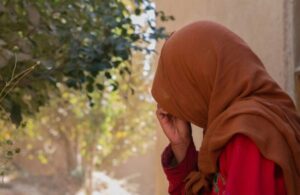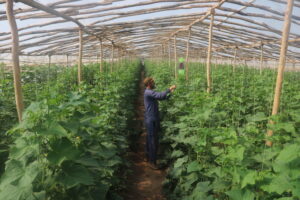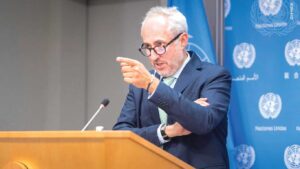KABUL (SW) – The coronavirus pandemic has disrupted the progress recorded in the achievement of the SDGs (Sustainable Development Goals) till 2030, as the globally recognizable agenda for fostering inclusive development.
According to a latest UNDP report, the Human Development Index (HDI) is expected to decline this year for the first time since 1990, when it was first introduced.
In Afghanistan, the pandemic has also negatively impacted all A-SDGs (Afghanistan SDGs). Particularly, SDG1 (End Poverty) deteriorated significantly since poverty rate rose from its pre-COVID-19 level of just under 55 percent to 72 percent.
It said though COVID-19 is clearly a setback for the Afghan economy and the attainment of the A-SDGs, it does not undermine Afghanistan’s long-term commitment to its sustainable development vision. The Afghan Government increasingly realizes that A-SDGs should be the building blocks for policy interventions addressing the socioeconomic fallout from the pandemic.
Based on the findings of the UNDP Country Office Country Notes findings, the Afghan government would need to allocate resources equivalent of 15% of the current GDP for immediate interventions in the health sector, along with social protection measures, including SDGs attainment in 2020. This would include: (i) $300 million for overall SDG attainment, (ii) around $250 million for emergency interventions to fight COVID-19 and (iii) comprehensive social protection measures (cash transfer schemes to eligible citizens) amounting to the tune of $2.5 billion. Invariably, these figures are monetarily much higher as a percentage of current non-military government expenditure.
Moreover, the Afghan government could mobilize more revenue through more efficient tax collections by focusing on strengthening institutions (SDG-16). Based on the findings from Afghanistan Human Development Report (2020) and our model simulations, 30% of the potential revenue to be generated by VAT collections at the borders, 30% of revenue to be collected from excise and export tax from legalization of illegal mining activities could fund A-SDGs achievement in 2020; the remaining 70% additional revenue would support both the fight against COVID-19 and the longer-term development agenda.
In addition, if regional trade expands, it would significantly increase GDP growth. More specifically, if the cost of trade between Afghanistan and the South Asian Association for Regional Cooperation (SAARC) countries decreases by 10%, it would boost Afghanistan’s GDP by around 4% in 2020. This additional revenue could finance SDG attainment as well as being deployed in addressing the adverse impact of COVID-19.
UNDP said it will re-orientate its programme portfolio towards supporting the Afghan Government’s strategic agenda to help its citizens build greater trust in Government (as defined in the ANPDF II). UNDP will collaborate with the Afghan Government to adopt an integrated manner in the implementation of the 15 National Priority Programmes (NPPs), thereby building access to innovative financing mechanisms and sustainable investment strategies.
Leveraging its strong collaboration with other development organizations, as well as its advisory and continuous dialogue with the Afghan Government, UNDP said it aims to play a catalytic role in Afghanistan’s transition to sustainable and inclusive development by 2030.
The platform approach proposed by the UNDP is being based on a holistic approach which links traditional budget planning with innovative finance towards implementing sustainable development policies and programmes in Afghanistan.
ENDS







